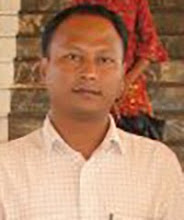| Objectives | |
| The International Theravãda Buddhist Missionary University was opended on December 9, 1998, with a total of students- 12 from inside the country and 42 from abroad- -attending its diploma course. The University has the following objectives:-
| |
| Historical Background of the ITBMU | |
| With the permission of the State Peace and Development Council, according to the decision (22/98) of the meeting of the Government of the Union of Myanmar held on 5th June 1998, the ITBMU was officially established with the organization of new set up including 327 officer posts and 426 ordinary staff-member posts. | |
| By the order of the Ministry of Religious Affairs (Minister' s office), 69 officer posts and 145 emloyees totalling 214 posts were allowed to be appointed on 9th July 1998 in 1998-99 financial year as the first phase. The ITBMU is located near the Tooth Relic Pagoda (Yangon) on Dhammapala hill, Mayangon Township, Yangon. The grand inauguration ceremony was held on 6th waxing moon of Nadaw, 1360 ME (9th December, 1998), Wednesday, at the Mahã Pãsãna Cave on Kaba-Aye Hill, Mayangon, Yangon. | |
| Organization Set-up | |
| Academic Faculties of the ITBMU are founded as follows-
The administrative divisions have been formed, in conformity with rules and regulations of the University Organization Set-up, in the following manner-
One diploma and three kinds of degree are offered for under-graduate and post-graduate students. They are as follows:-
| |
| Activities | |
| In 1998-99 academic year, the Diploma course in Buddha Dhamma was initiated for the first time starting on 9th December, 1998. Over 100 students from inside the country and abroad attended after taking the entrance examination and interviews viva voce examinations. | |
| The qualification for admission is to have passed Dhammãcariya for Myanmar monks, and to be graduates for nuns and laymen; and to have passed matriculation or equivalent for foreigners. The ceremony for awarding Diploma Centificates was held on 12th November, 1999 for the academic year 1998-99. Testing for entrance examination (written and viva voce) for the Diploma Course in Buddha Dhamma have been held for 2000-2001 academic year and the students comprising monks, nuns, men and women from inside the country and abroad are attending since 1-6-2000. In this academic year, first year course (B.A) has also begun since 1-6-2000. In this University, Rector Sayadaw Bhaddanta Silãnandãbhivamsa takes the leading role of the academic affairs, and Pro-Rectors, Deans of Faculties, Professors, Emeritus Professors, Visiting Professors, Lecturers, and Assistant Lecturers (Sayadaws, Nuns and lay persons) are carrying out the academic duties. The meetings of ITBMU Council are held regularly and coordination meetings of the Academic and Administrative Bodies are held monthly. The lectures, syllabus and time-tables are arranged under the guidance of Deans of the respective Faculties and refresher courses for part-time tutors have also been conducted. The practice of Pindacãrika- the duty of going alms round through the houses in the village, are practically taught to the foreign monk-students in accordance with the Vinaya Disciplinary Rules by the Lecturer-Sayadaws and the Dean-Sayadaws headed by the Rector Sayadaw. | |
Subscribe to:
Comment Feed (RSS)
Labels
Cities
(228)
religion
(119)
Bagan
(80)
Biographies
(60)
Burma History (Myanmar)
(46)
Buddha's Teaching
(34)
Customs and Traditions
(29)
Information
(18)
Aung San Suu Kyi
(1)
Burma VJ
(1)
The Monk Revolution
(1)








|